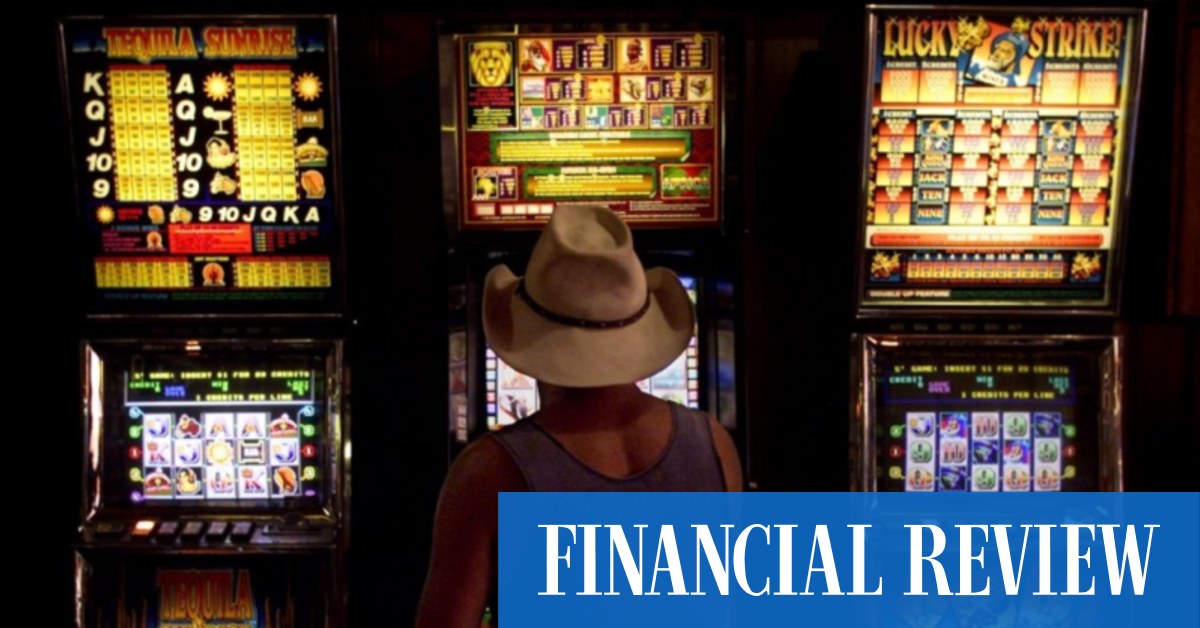
“I don’t want it in the portfolio,” said Mr Squires, referring to gambling in general. “But there needs to be a thorough process that we go through to justify, on a financial outcome to members, why we would make those decisions.”
While the incoming gambling laws aren’t transformational, it’s still the most change seen in years. Victoria plans to impose betting caps, shorter opening hours for venues and slower machines, and NSW is reducing the number of allowed slot machines. Furthermore, a recent Parliamentary inquiry made 31 recommendations including banning online gambling adverts and national regulation.
About 185,000 electronic gaming machines were operating in Australia in 2021, according to the Queensland Treasury. More than 90 per cent of those are located outside of casinos, often in community venues that entice customers with cheap alcohol. AustralianSuper is the second-biggest shareholder in Aristocrat, the dominant maker of slot machines in Australia and one of the largest in the world.
“ESG is coming up more with investors in relation to Aristocrat,” said Adrian Lemme, director of retail and gaming research at Citi. “This is where markets are headed, in terms of ESG becoming a bigger part of the investment process. So all companies obviously have to address it.”
No divestment plans – yet
Super funds have been among the most engaged of Aristocrat’s investors on environmental, social and governance issues, according to the company. The ESG investor day on December 5 will canvass a range of issues including compliance with regulations and responsible investing practices.
“Aristocrat strives to lead our industries in some sustainability issues; on other issues we aim to keep pace with peers or make a meaningful contribution,” a spokesperson said.
AustralianSuper has by far the biggest gambling holdings among its peers, according to Bloomberg calculations, with about $2.7 billion worth of such shares in its default investment option, where members’ savings automatically go unless they choose other strategies.
While the $300 billion fund has no current plans for divestments, CIO Mark Delaney conceded that portfolios needed to reflect community expectations.
“Gambling is a classic ESG issue,” Mr Delaney said in an interview. “It’s one whereby the social appetite and the regulatory environment evolves over time, and we need to be forward looking about how we do it.”
Almost 40 per cent of Australian adults gamble at least once a week, according to a government survey, with almost half considered at some risk of harm. But while climate risk features heavily in investment teams’ discussions, social issues can be trickier to tackle.
Super funds contacted by Bloomberg pointed to their responsible investment options as a way of members putting their savings toward stocks that are screened from industries like gambling.
“We’ve been engaging with these companies for a while around their social license and around what is responsible gaming practices,” HESTA CIO Sonya Sawtell-Rickson said earlier this year. “We’re pleased and supportive of the changes that are emerging in terms of trying to limit harm whilst allowing responsible actions.”
Still, many Australians don’t know where their retirement savings are invested, either through lack of efforts or because of patchy disclosures. While funds are required to publicly disclose their investments, members often have to wade through spreadsheets or obscure website pages to find them.
Recovered gambling addict Andrew Ientile’s slot machine addiction lead him into bankruptcy, and he’s since managed to rebuild his life. The 34 year-old health services worker was shocked to discover that his super fund owned gambling stocks.
“Knowing what I’ve been through and knowing how destructive the gambling industry can be, and how much losses and things you can have in there, it’s disgusting to me,” he said. “It almost seems like they’re using our money for the wrong purpose.”
Bloomberg
Bloomberg Wealth